Chess is a popular board game that is divided into three categories: royals (Kings and Queens), middlemen (Knights, Bishops, and Castles), and foot soldiers (Pawns). The pawns are mostly used and eventually sacrificed for the good of the king or queen (tough life); however, if it manages to make it to the other side of the board by chance, it becomes royalty.
Tunde Onakoya's ChessinSlumsAfrica does just that with the lives of slum children; through chess, he demonstrates to them that they can leave the slums and live better lives.
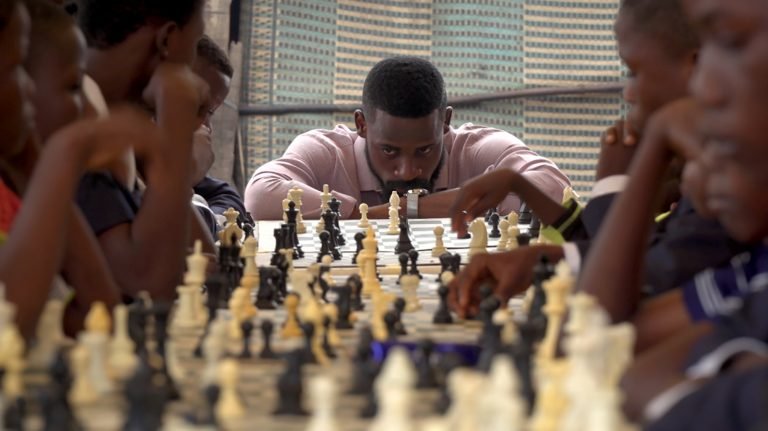
TUNDE ONAKOYA WITH KIDS IN SLUM
What is surprising (well, not really) about our leaders is how disconnected they appear to be from the struggles of citizens. According to UNICEF, Nigeria accounts for one in every five of the world's out-of-school children. Unfortunately, as a result of this, these children will eventually lose their childhood innocence and become thugs and miscreants.
Tunde Onakoya, who grew up in a slum, recognized their plight and decided to give them the same thing that had given him hope as a child: the gift of chess.
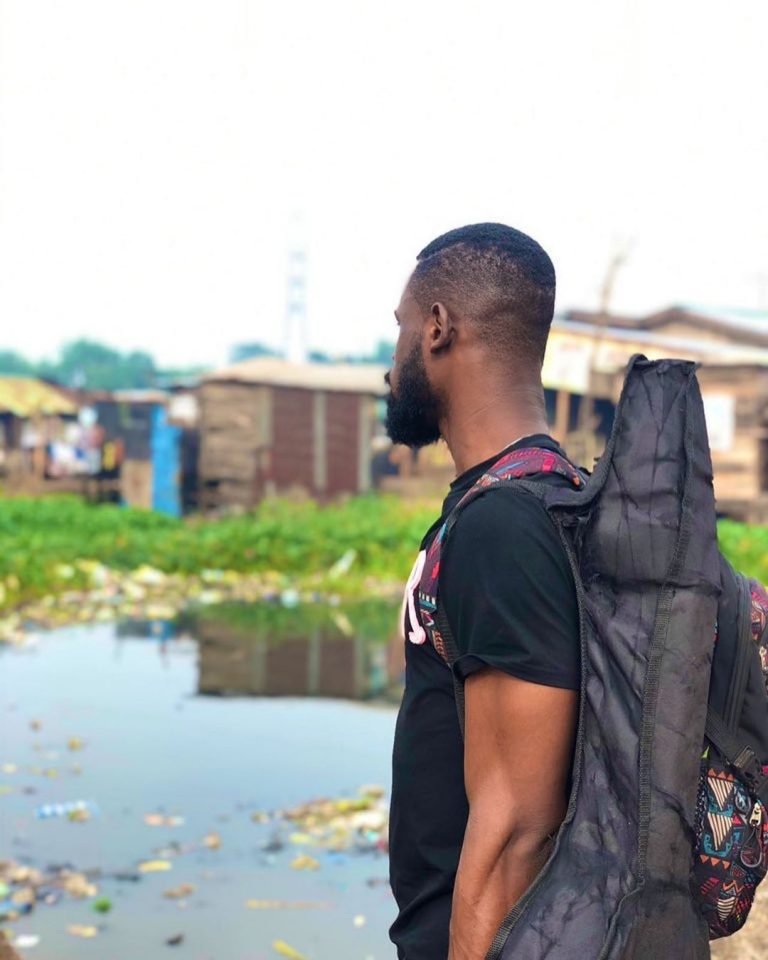
TUNDE ONAKOYA
Tunde had a difficult childhood, growing up in the Ikorodu slums of Isale Odo as his parents struggled to make ends meet. They couldn't afford to send him to secondary school after primary school, so he had to stay at home for two years before starting JSS1. He was introduced to chess for the first time at a barbershop during this time period.
He went to this shop to play PlayStation 1 until he noticed the barber playing chess with his friends. The barber had no intention of teaching him, but he stayed to observe and eventually picked up on the rules and style of play.
Tunde's mother then decided to work in a secondary school in exchange for his school fees, allowing him to attend a good school. Not only did his English improve as a result of this, but so did his understanding of chess. By the time he reached JSS2, he had won his first chess tournament, which moved his father to tears. Chess became a gateway through which he was exposed to good things as he traveled to new places and met new people and things.
After completing his secondary school education, he began the struggle to gain university admission, but despite being admitted to Lagos State University, he could not afford the fees. He reluctantly decided to pursue a degree in computer science at Yaba College of Technology. Not surprisingly, during the time he sought admission, he stopped playing chess but at YabaTech, chess found a way back into his life.
On a fateful day, as he walked around the school's sports arena, he came across a chess room, and like a long-lost love, he joined the chess club and eventually became a member of the school's team. This meant he didn't have to pay any school or housing fees. He began to obsessively play the game because it was a means of survival for him.
This run, however, came to an end when he graduated; he could no longer represent the school. He started looking for work but was unsuccessful. To make ends meet, he began playing instruments for churches. He had a group of friends who were also chess players and were looking for work.
They decided to teach students in schools how to play chess, and although it did not pay much, it was something
This went on for two years, from 2016 to 2018, and at this point, he considered quitting chess to pursue a professional coding course, but then something happened that completely changed the course of his life. After church one day, he went with a group of people to the Majidun slum area. He saw a lot of out-of-school children who were in places where children should not be.
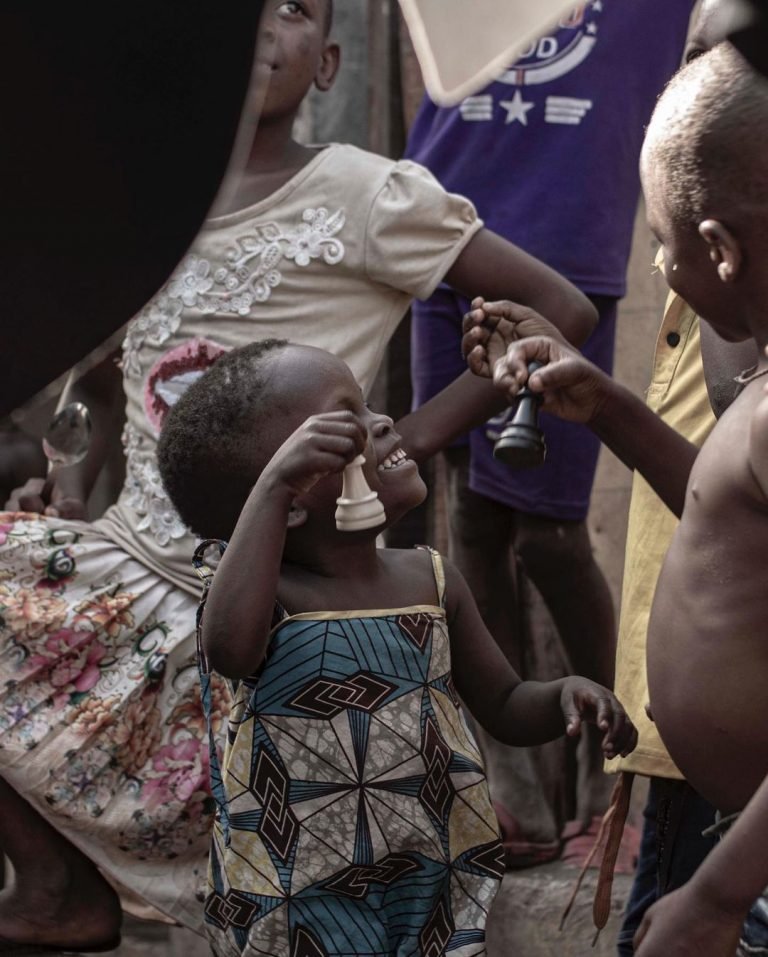
CHILDREN IN SLUM
He made the decision to do something about it right then and there. Chess provided him with a chance of survival, and he believed it could do the same for them. He gathered his friends, obtained permission from the community leader, and began teaching the children how to play chess. The class began with just five children, then grew to ten, fifteen, and one hundred. The children learned with such zeal and at such a rapid pace.
(Fun fact: Tunde made certain that food was provided for every child who participated in the program. You can't learn if you're hungry.)
As is always the case, exposure is critical, so Tunde began to share the children's stories on social media, and the responses gave him the confidence he required. ChessinSlumsAfrica was founded on September 1st, 2018.
The NGO quickly gained traction after being featured on CNN, BBC, France 24, and other media outlets, introducing them to international chess organizations such as Chesskid and Chess.com, and even receiving funding from Venture Garden Group.
(Fun fact: Chesskids collaborates with ChessinSlumsAfrica to distribute iPads)
Makoko, the world's largest floating slum, was added to the project. Makoko was especially difficult because the children didn't speak English, but this location introduced them to Ferdinand, a chess prodigy.
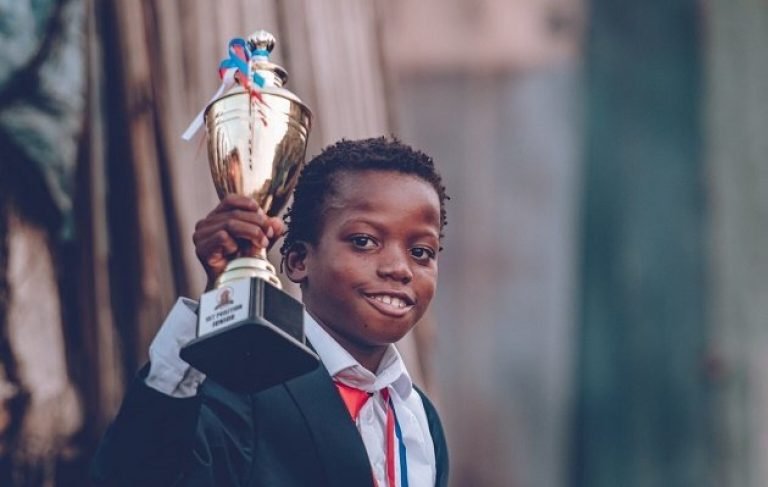
FERDINAND
Ferdinand had cerebral palsy, so he couldn't speak much because of his speech impairment, but when it came to chess, his understanding of the game was almost unparalleled. After two weeks of preparation, he won the junior category on the day of the tournament. His story went viral, and he was invited to play chess by Governor Babajide Sanwo-Olu, who is also a chess enthusiast. The game ended in a tie, but Ferdinand received 1 million Naira and a scholarship as a result.
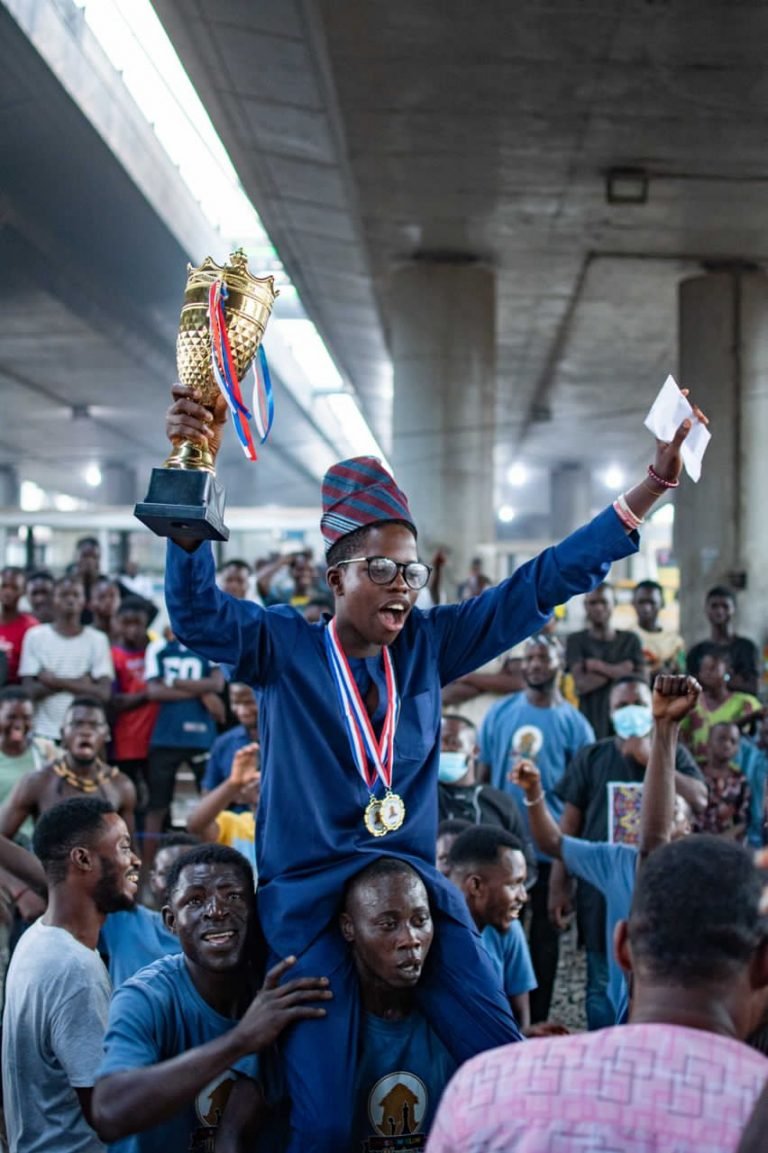
FAWAZ ADEOYE
Tunde recently held his latest project at Oshodi's infamous under bridge. At the end of the training, the tournament was won by Fawaz Adeoye, an 18-year-old who had been working as a conductor and sleeping under the bridge for three years. He was given a cash prize of 2 million Naira, and he and the other players were whisked away from the underbridge. Plans are being made to place them in appropriate rehabilitation centers and orphanages.Tunde Onakoya and ChessinSlumsAfrica are full of inspiring stories. First, the children who participate in the chess program are moved out of the slums and placed in better housing. (Very nice). Then,
Tunde adopted two of the kids who were orphaned when they lost their mother to HIV. Lastly, in the past three years, about 300 children have had their lives impacted by chess with 30 on lifelong scholarships.
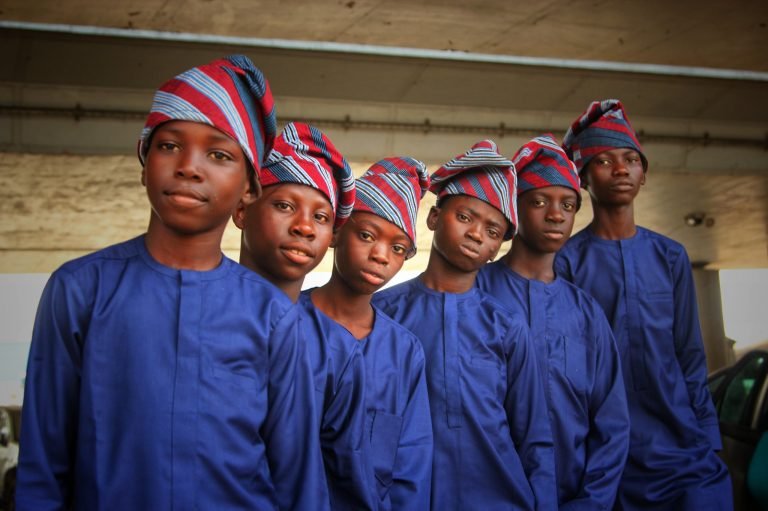
KIDS OF JUST CONCLUDED EVENT AT OSHODI
ChessinSlumsAfrica, founded by Tunde Onakoya, is preventing many of these children from becoming future government pawns by showing them that they, too, can become royalty. You can be hopeful, regardless of where you were born or where you live, that you, too, can make something great of your life.
Hi @manuel6 , it is good you wrote about Tunde. He is my good friend and I'm glad he is getting the support he needs to move chess in Nigeria forward.
Great post, however, it will be nice to state the sources of your pictures. I'm pretty sure Chess in slums team won't want their pictures used without their permission.
Thank you.
!PIZZA
Thank you for the awareness, I thought writing down the names of individual under each pictures is enough.
It really amazing to see what an impact chess can have on the live of people!
¡Enhorabuena!
✅ Has hecho un trabajo de calidad, por lo cual tu publicación ha sido valorada y ha recibido el apoyo de parte de CHESS BROTHERS ♔ 💪
♟ Te invitamos a usar nuestra etiqueta #chessbrothers y a que aprendas más sobre nosotros.
♟♟ También puedes contactarnos en nuestro servidor de Discord y promocionar allí tus publicaciones.
♟♟♟ Considera unirte a nuestro trail de curación para que trabajemos en equipo y recibas recompensas automáticamente.
♞♟ Echa un vistazo a nuestra cuenta @chessbrotherspro para que te informes sobre el proceso de curación llevado a diario por nuestro equipo.
Cordialmente
El equipo de CHESS BROTHERS